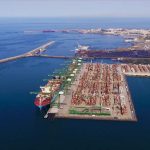Angolan election debated in Lisbon
The 1st dinner-debate of the ACNAE-Afro-European Business Council took place on the 28 July. At the Pestana Palace in Lisbon, prospects for the future of Angola were widely discussed, with the electoral process at the centre of attention. This first ACNAE meeting brought together 15 guests and lasted about three hours. Participants included journalists, managers, businessmen, university professors, jurists and a political scientist. The range of guests also included a former socialist and a social democratic parliamentarian, both with professional links to Angola.
By CEDESA
Manuel Gil Antunes, Managing Director of Algora, SGPS, vice-president coordinator of ACNAE was responsible for moderating the meeting. Among those present, the Luso-Angolan businessman and manager, currently a deputy to the Assembly of the Republic, Nuno Carvalho, the former deputy Sérgio Vieira, Celso Filipe, deputy director of Jornal de Negócios, the former member of the Civil House of the Presidency of the Republic of Angola, Eliseu Gonçalves, António Manuel Silva Santos, journalist from RDP Africa, José Mendes Ribeiro, former member of Accenture’s staff, Rui Santos Verde, professor at the University of Oxford, Filipe Delfim Santos, from CEDESA, Eunice Carvalho, from Eureka Plast, Filomena Marques, from ISTEC, Miguel Almeida Dias from ACNAE, and Abílio Bragança Neto, jurist, political scientist and commentator for RTP-África.
The purpose of the meeting was to clarify the Angolan situation on the eve of the elections, the viability and transparency of the electoral process itself, of the proposals of the main political forces in attendance, evaluating the mandate of the current president, in a debate that was lively and intense.
Most of those present considered the MPLA victory to be expected, pointing to objective causes for such victory, such as the international recognition of the work of President João Lourenço, the beginning of the fight against corruption or the success of the IMF program. Others added that the predictable victory of the ruling party would also be based on the constitutional model of the electoral system, admitting that electoral competition is an undeniable fact, and that there is, in fact, a debate like never before.
Many considered the dispute over the transparency of the elections on the part of one of the main opposition forces to be notorious, which could contribute to tainting the process itself. Early delegitimisation of elections can end up being harmful to democracy.
It is clear that the same force that questions the electoral process and the means available for the campaign – news coverage by public and private media is the one that has registered the best media performance, especially due to the use of social networks and a sudden access to international stages, sometimes with links to controversial personalities such as the Hungarian Prime Minister, Viktor Orbán. This raised doubts, regarding some of those present, in view of the means available, and the support made available, raising fears that UNITA is, perhaps unintentionally, at the service of the oligarchic interests challenged by the João Lourenço government. As if the fight against corruption initiated by the current government in the last five years, which was carried out against broad sectors historically linked to the MPLA, had given rise to a political and media counter-offensive of those same interests, which resort to the presidential campaign to attack the reformist government of João Lourenço.
A recurring criticism was the still limited scope of the current government’s reforms – although it was recognised that the conjuncture, with the drop in oil prices and COVID, was not compatible with immediate achievements – it was not possible to do in this last five-year period what could not has been achieved in the previous four decades.
Those present nevertheless highlighted the attempt to moralise the regime and the international prestige of the Minister of Finance, a staff member trained in Angola. The improvement in living conditions achieved in the post-pandemic period. The gradual weakening of China’s position as Angola’s preferred partner was also underlined.
In the current context, the adhesion of members of the MPLA to the candidacy of Adalberto da Costa Júnior was also mentioned, which demonstrates a realignment of the forces involved. It was also found that UNITA is not clear in its proposals in the area of finance and economics, and has not yet presented names for a possible executive, which weakens the quality and credibility of its program.
The final consensus obtained in the debate refers to the need to accelerate the pace of reforms, diversify the Angolan economy and ensure job creation. The likely increase in UNITA’s vote despite the MPLA victory, based on the superiority of the number and quality of its members, and on the constitution of provincial and national circles, demonstrates the need to increase the reformist impetus and is a warning to the movement until now politically hegemonic. It was also mentioned that the political contribution of UNITA throughout the post-independence period remains to be discussed, namely that resulting from the party’s participation in the GURN – Government of Unity and National Reconciliation, where it held four relevant ministries, including the supervision of Health, Commerce, and Urbanism and Environment.
Consensus could also be found in the conclusion regarding the duration of the next political cycles in Angola, resulting from this first debate promoted by ACNAE. It is very difficult for another political party, and a new president will be able to perpetuate himself at the head of the Angolan Republic for three decades, which in itself is a paradigm shift.
Photo: Manuel Gil Antunes vice president ACNAE. (supplied)










